Alabama Census Resources
What is the impact in our state and region? Find resources using the links below.
Why is the Census Important to Alabama
16 Large Federal Assistance Programs that Distribute Funds on Basis of Decennial Census-derived Statistics (George Washington University) (PDF)
The Role of the Decennial Census in the Geographic Distribution of Federal Funds (George Washington University) (PDF)
National Census Resources
The information below was retrieved from the American Library Association.
In 2020, the Census will be conducted primarily online for the first time. Like past e-government efforts, this will likely impact libraries and libraries' technology resources as staff work to assist people in participating in the Census. The 2020 Census also presents an opportunity to increase public awareness and use of Census data.
Why the Census is Important
-
Representation: The decennial count of all U.S. residents is required by the U.S. Constitution to determine representation in Congress and the Electoral College (known as reapportionment). This data is also the basis for drawing districts for federal, state, and local offices (known as redistricting).
-
Funding: The Census is key to the allocation of billions of dollars in federal funding to states and localities (such as grants to states under the Library Services and Technology Act).
-
Information: Data resulting from the Census is widely used by researchers, governments, businesses, and other organizations (to, for example, plan for library services).
Key Roles for Libraries
-
Partners in E-Government: In 2020, the Census Bureau for the first time will encourage residents to complete the Census questionnaire online, starting in March 2020. Like past e-government efforts, this likely will place additional demands on library staff and technology resources to enable people to complete the Census questionnaire. (Other response methods will also be available.) Libraries can use their experience partnering with the government to assist their communities in achieving a fair, accurate, and inclusive count.
-
Education and Community Outreach: Libraries have the opportunity to educate their communities about the Census. In the 2010 Census, more than 6,000 library locations hosted Census Bureau outreach activities.
-
Public Spaces: Census Bureau field staff often utilize community rooms in libraries as affordable temporary workspaces, such as for staff hiring and training. Other community stakeholders may also use library meeting rooms to host events related to the 2020 Census.
2020 Census Key Facts (PDF)
2020 Census Guide for Libraries (PDF)
Census 101: What You Need to Know (PDF)
Sample copy of 2020 Census questionnaire (PDF)
Learn More
2020 Census (U.S. Census Bureau)
Important Dates (U.S. Census Bureau)
Census Questions Asked (U.S. Census Bureau)
Why Are They Asking That? (Population Reference Bureau, PRB)
How the 2020 Census will invite everyone to respond (PDF) Cómo el Censo del 2020 invitará a todos a responder (PDF)
Census 2020 Hard to Count Map (City University of New York Center for Urban Research)
Public libraries across the United States are planning to play an active role in the 2020 Census (City University of New York Center for Urban Research)
2020 Census Technology FAQs – technical and security questions regarding the 2020 census (CensusCounts.org)
The 2020 Census and Confidentiality (PDF) El Censo del 2020 y la Confidencialidad (PDF)
Federal Laws That Protect Census Confidentiality (Brennan Center for Justice, February 2019)
Census Resources
Census Employment Opportunities
2020 Census Jobs (U.S. Census Bureau)
Sources:
"2020 Census", American Library Association, October 28, 2019. http://www.ala.org/advocacy/govinfo/census (Accessed January 6, 2020)
